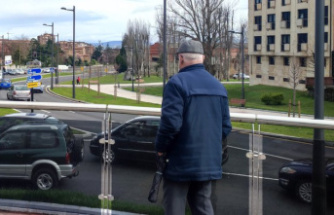Japanese voters began voting on Sunday to renew half of the Upper House of Parliament, an election largely eclipsed by the assassination two days earlier of former Prime Minister Shinzo Abe during an election rally in Nara (western country).
• Read also: Assassination of Shinzo Abe: what we know about the suspect
• Read also: Japan in mourning after the assassination of Shinzo Abe
• Read also: Shinzo Abe: legacy, controversies and challenges
Japan's current Prime Minister Fumio Kishida, whose Liberal Democratic Party (PLD, nationalist right) was widely favored in the polls, denounced the "barbaric" attack on his former mentor, insisting on the importance of "defending free and fair elections, which are the foundation of democracy”.
“We will never give in to violence,” he added.
The shooting assassination of Mr. Abe, one of the Archipelago's best-known politicians, has deeply hurt and moved people in Japan and abroad, and messages of condolence have poured in from all over the world, including from China and South Korea, with which Japan has often rocky relations.
The alleged perpetrator of the attack, arrested at the scene, confessed to having deliberately targeted Mr. Abe, explaining to the police that he was angry at an organization to which he believed that he was affiliated. Some Japanese media mentioned a religious group.
This 41-year-old man named Tetsuya Yamagami is said to be a former member of the Maritime Self-Defense Force (the Japanese Navy), and told law enforcement that he used a homemade weapon.
After being briefly suspended by the various parties at the news of the former prime minister's attack, the election campaign resumed on Saturday with heightened security measures, as the police in Nara acknowledged "undeniable" flaws in those surrounding Mr. Abe's meeting.
It was dominated by local concerns, in particular price rises and risks regarding electricity supply, while the heat wave that has affected Japan since the end of June has raised fears of a power shortage.
The ruling coalition, formed by the Liberal Democratic Party (PLD) of Mr. Kishida, 64, and his ally Komeito, could according to projections win more than 70 seats out of the 125 to be filled on Sunday (the Senate has a total of 248 seats, half renewed every three years).
For lack of being able to present an attractive alternative, the center-left Constitutional Democratic Party (PDC) risks, according to the polls, losing part of the 45 seats it currently holds, and its place as the main opposition force.
In a country often criticized for the lack of female representation in its institutions and the management of its companies, a record proportion of 33% of women are among the 545 candidates this Sunday.
A large victory in the senatorial elections would consolidate the power of Fumio Kishida, who has championed a more redistributive economic policy called “new capitalism”, before a three-year period without scheduled elections.
His close cooperation with Japan's Western allies to put pressure on Russia has also been praised in the Archipelago, and his plan to "significantly" increase the defense budget is also popular, as China continues to assert its territorial ambitions in Asia-Pacific.
The trend of higher defense spending could strengthen further after the election, according to Yu Uchiyama, a professor of political science at the University of Tokyo, who believes that (Japan's) "firm stance on the 'respect for China will probably be maintained'.













